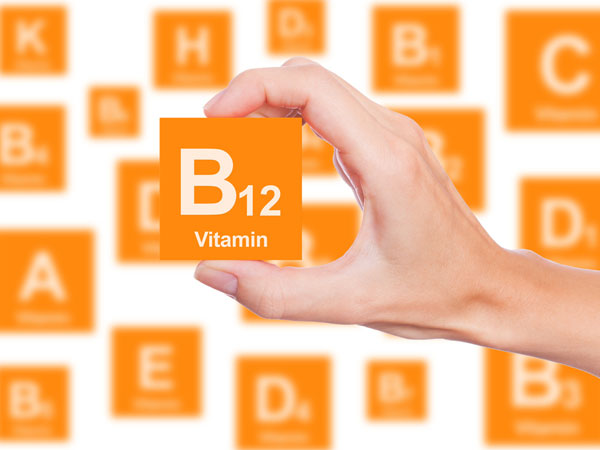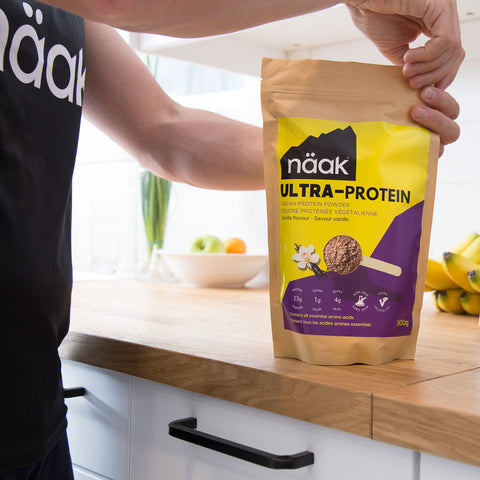With a plant-based diet, it’s possible to have it all: save the planet, reach your ultimate physical potential, and be the healthiest you’ve ever been. It’s no surprise thatplant-based athletes are becoming more and more popular. However, there are certain nutritional considerations plant-based athletes need to take into account, as some nutrients are not found in plant products. Don’t worry, this article will walk you through all of the nutrients you need to keep an eye on, including any supplements you may need!
Vitamin B12
Vitamin B12 may be themost important supplement for vegans. Because vitamin B12 is not found naturally in plant foods, a plant-based diet frequently falls short. In fact, the only scientifically proven way for vegans to reach therecommended daily amount of 2.4 mcg/day is by consuming B12-fortified foods (such as fortified cereals or nutritional yeast) or taking a vitamin B12 supplement. Learn all about vitamin B12here!

However, if you are anentotarian, cricket powder is a fantastic way to reach your daily goal of B12: one serving of cricket powder provides 80% of your recommended daily intake!
Iron
Eating a plant-based diet that is high in iron-rich foods is enough to provide the body with adequate iron. Clickhere to learn more about iron! Therecommended dietary allowance (RDA)for men and postmenopausal women is8 mg/day while premenopausal women need18 mg/day. Include plant-based iron rich foods such as dark leafy greens, legumes, fortified cereals and breads, nuts, and seeds to your diet to help reach iron targets. Additionally, pair your meals with vitamin C-rich foods to enhance iron absorption. Iron supplementation isnot essentialas long as you are mindful of regularly consuming enough iron.

Omega-3 fatty acids
There are three main omega-3 fatty acids:alpha-linolenic acid (ALA), eicosapentaenoic acid (EPA), and docosahexaenoic acid (DHA). While ALA must come from the diet, your body can synthesize EPA and DHA using ALA. Unfortunately, the human body has a limited capacity to convert ALA into DHA or EPA, which is why vegans and vegetarians usually have lower EPA and DHA levels. It is recommended that a minimum of 250-500 mg of EPA and DHA should be consumed each day for healthy adults.
ALA is present in many plant sources, such as walnuts, flaxseeds, and chia. However, EPA and DHA are predominantly found in fish and microalgae, so it can be difficult to consume adequate amounts on a plant-based diet.Seaweed, algae, and algae-based supplements are perhaps the best vegan sources of EPA and DHA
Protein
Many athletes wonder if a plant-based diet can provide enoughprotein. The answer is yes! Although plant protein has a lower biological value compared to animal protein, eating a well-rounded diet that includes plant based protein such as soy, tempeh, beans, and lentils is enough to meet your daily requirements. If you’re still worried that you aren’t getting enough protein, consider supplementing with protein powder. You can find plant-based protein powder on our websitehere!

Vitamin D
Most of our vitamin D comes from sun exposure since there is little vitamin D present in food. Young adults need600 IU/day of vitamin D while adults older than 70 need800 IU/day. You can get plenty of vitamin D just by spending 15-20 minutes in the sun. However, this may not be possible during winter months. To maintain a healthy vitamin D status all year round, include fortified non-dairy milk, cereals, or orange juice to your diet. If you find that your levels are low, supplementation may be necessary.
Zinc
Zinc is found in many different plant foods but may not be easily absorbed by the body. For men aged 14+, the RDA for zinc has been established at 11 mg/daywhile for women 19+, the RDA is set at8 mg/day. By including plentiful sources of zinc in your diet, such as beans, lentils, fortified foods, whole grain foods, nuts, and seeds, you can reach this amount and won’t need to turn to supplementation.
Calcium
Calcium is especially important to athletes, since stress is exerted on the bones on a daily basis. The RDA for calcium is set at1,000 mg/dayfor most adults and increases to1,200 mg/day for those over the age of 50. Thankfully, calcium is not only found in milk, but also in many different plant sources! Foods such as dark leafy greens, broccoli, fortified foods, and soy products contain sources of calcium. By including these foods in your diet, you can avoid supplementation.
Iodine
Vegans especially are considered at risk for iodine deficiency as studies report that vegans have up to 50% lower blood iodine levels than vegetarians. The RDA for adults has been established at 150 mcg/day. Thankfully, much of the table salt sold in supermarkets is fortified with iodine: just half a teaspoon of iodized salt is sufficient to meet daily needs. Iodine is also present in foods like seaweed.
In conclusion...
Having the rightnutrition is key to maintaining athletic performance. If you want to thrive on a plant-based diet, there are just a handful of essential nutrients that you need to watch out for, as we’ve listed in this article. Keeping an eye on these nutrients will hopefully encourage you to be more mindful about what nutrients you regularly consume and which ones you lack.

It is important to note that supplementation is not always necessary: it is possible to get almost all of your nutrients through a whole foods plant-based diet. If you think that you may need supplementation, be sure to ask for the guidance of a nutritionist/dietitian first to avoid possible complications.
If you’re starting a plant-based diet and don’t know where to start, clickhere for some tips!































Leave a comment (all fields required)